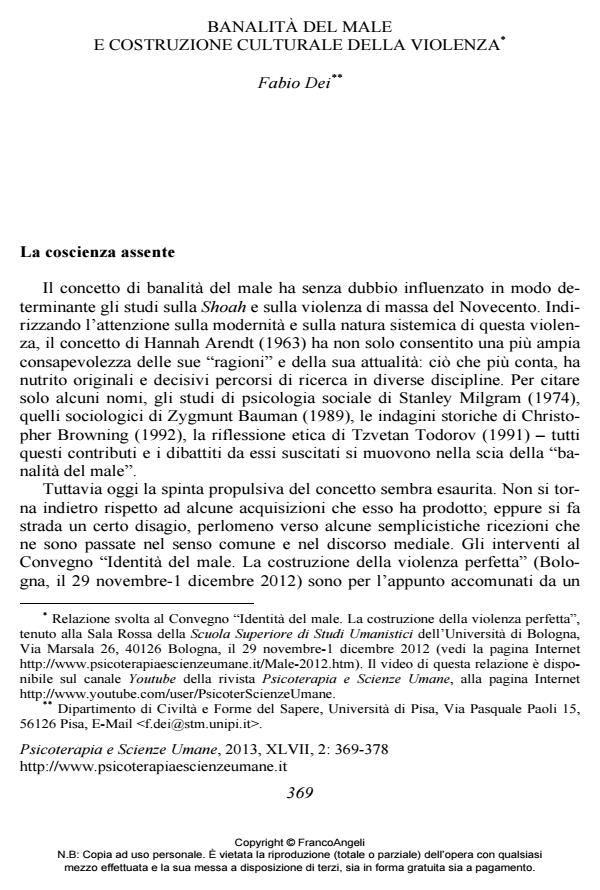Banality of evil and social construction of violence
Journal title PSICOTERAPIA E SCIENZE UMANE
Author/s Fabio Dei
Publishing Year 2013 Issue 2013/2
Language Italian Pages 10 P. 369-378 File size 415 KB
DOI 10.3280/PU2013-002015
DOI is like a bar code for intellectual property: to have more infomation
click here
Below, you can see the article first page
If you want to buy this article in PDF format, you can do it, following the instructions to buy download credits

FrancoAngeli is member of Publishers International Linking Association, Inc (PILA), a not-for-profit association which run the CrossRef service enabling links to and from online scholarly content.
In the common sense, the notion of "banality of evil" links violent behaviour to a kind of moral absence or emptiness: the killing of morality, the "lack of thought" which Hannah Arendt saw in Eichmann, the "empty minds" of juvenile delinquents. In this paper, it is emphasized the importance of an ethnographic method which approaches violence as a meaningful practice - the product of a cultural process, like other kinds of social action. Specifically, it is raised the problem of cultural and historical constitution of "violent subjectivities" in systems of social practices, and the contributions of authors such as Hannah Arendt, Franz Fanon and Giorgio Agamben are discussed.
Keywords: Banality of evil, violence, cultural anthropology, morality, Hannah Arendt
Fabio Dei, Banalità del male e costruzione culturale della violenza in "PSICOTERAPIA E SCIENZE UMANE" 2/2013, pp 369-378, DOI: 10.3280/PU2013-002015